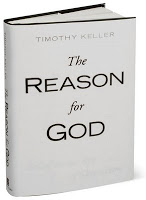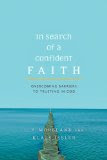This weekend, Acts 17 Apologetics held a series of debates with Osama Abdallah and Farhan Qureshi. I moderated the debates, but was able to take some notes as well. So here are some general comments.
Osama Abdallah vs. Nabeel Qureshi
“Is the Qur’an Miraculous?”
Abdallah’s entire opening argument centered on the scientific accuracy of the Qur’an as evidence of the Qur’an’s miraculous nature. Generally, his argument flowed as such:
1) The Prophet Muhammad was not a scientist
2) The Prophet Muhammad made scientifically accurate statements in the Qur’an
3) The Prophet could not have known these scientific facts well before these facts were confirmed by scientific investigation
4) Therefore, the Qur’an is a miraculous book
He proceeded to give various examples of these scientific facts from the Qur’an: reduction of the earth to dust, the big bang (Surah 21: 30), a coming “cosmic crunch” (Surah 21:104), the moon reflecting the sun’s light (Surah 10:5) and the moon having cracked (Surah 54:1), the earth as spherical (Surah 79:30), and etc.
Qureshi’s opening statement included much background information on the formation of the Qur’an. He utilized a medical diagnosis analogy to “diagnosis” the Qur’an as not a perfect revelation of God. Also, Qureshi argued that the seven ahruf mentioned in Sahih Al-Bukhari amounted to an escape clause for problematic textual variants. His focus here was refuting the claim that the Qur’an had been “perfectly preserved.” He then challenged the Muslim arguments from literary excellence, mathematical marvels, and scientific accuracy. In responding to the argument from scientific accuracy, Qureshi commented that these “facts” found in the Qur’an were either 1) taken out of the context of the Qur’an, or 2) blatantly scientifically inaccurate, or 3) obvious to the average person (not valid as evidence to the miraculous nature of the Qur’an).
Abdallah compared Qureshi’s sources for Islam to a Muslim utilizing the Nag Hammadi or Gnostic sources for Christianity. However, Qureshi’s sources were early and trusted Hadith (such as Sahih Al-Bukhari). Abdallah, though, referenced the Gospel of Judas; in other words, he seems to demand one methodology for approaching Islam and another for approaching Christianity. He then committed the tu quoque fallacy by arguing along the lines of “so what if the Prophet did things that falsify his prophethood, so did the Biblical prophets…are you going to reject them too?” Abdallah’s actual statement was, “how do you know none of the other prophets had a similar experience [to Muhammad]?” This kind of statement does not answer the problem for the prophet Muhammad. Instead, it diverts the same argument to another focal point, the Biblical prophets; thus, the tu quoque fallacy. His Biblical prophet example, however, was King Solomon. He then pointed to an apparent contradiction in 2 Chronicles 22:42 and 2 Kings 8:26 on the age of King Hezekiah when he became ruler (22 years old versus 42 years old), but left out the source and explanation of the problematic variant; which is important for textual criticism.
In Qureshi’s rebuttals, he re-emphasized his earlier refutation of the argument from scientific accuracy, addressing Abdallah’s “facts” one by one. Plus, Qureshi pointed out more evidence that the Prophet Muhammad does not fit the criteria for a prophet. For example, Muhammad used black magic to remove a spell on him. (Sahih Al-Bukhari, Vol. 4, Book 54, Num. 490).
Generally, Osama Abdallah’s presentation centered on the argument from scientific accuracy and Nabeel Qureshi answered each of Abdallah’s points, demonstrating that this argument is indeed not strong for the miraculous nature of the Qur’an. Further, Qureshi’s arguments that remained unanswered were 1) Muhammad’s original reaction to this revelation (thoughts of demon possession), 2) the problematic historical transmission of the Qur’an, 3) the apparent mathematical marvels, which can be found anywhere if one is looking for them, and 4) the challenge from literary excellence, which has already been met several times over.
The debate is posted on www.answeringmuslims.com, under “Is the Qur’an Miraculous?”
MJ












 Five Sacred Crossings: A Novel Approach to a Reasonable Faith
Five Sacred Crossings: A Novel Approach to a Reasonable Faith